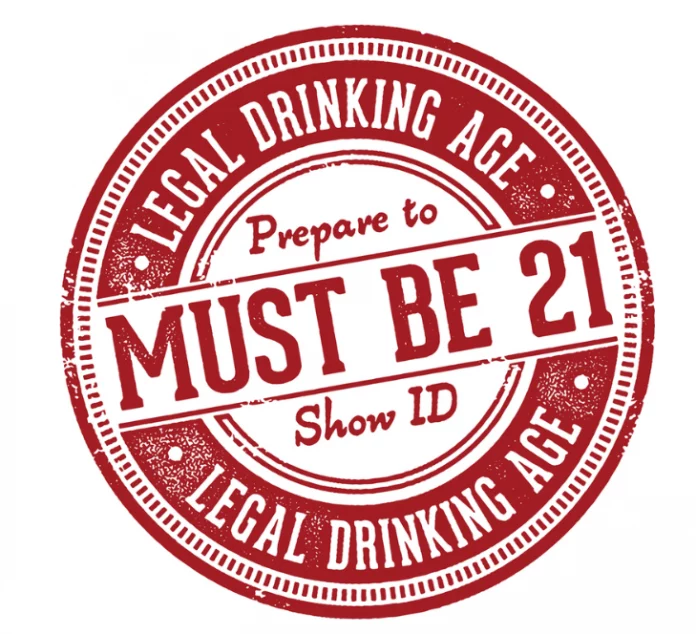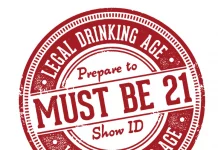This article is written by Sarthak Kulshrestha, a BA.LLB. student at Jagran Lakecity University, Bhopal. In this article, the author has discussed the laws relating to alcohol that are in force in India, along with the laws which apply to different states.
This article has been published by Sneha Mahawar.
Table of Contents
Introduction
Alcohol is a largely consumed intoxicating substance in our country. There are various types of drinks like beer, vodka, port wine, whiskey, and many more that have a considerable percentage of alcoholic content making these drinks an intoxicating substance. In our country specifically, the sales of liquor do not fall but keep on rising with time. One of the major reasons for the liberal attitude of governments regarding the sale of alcohol is the additional tax imposed on liquor. It contributes majorly to the economy of our country. For this very reason, the liquor shops were among the first businesses to be opened after the imposition of lockdown in 2020. When alcohol shops were opened after a long time following the lockdown, people gathered in huge numbers to buy drinks.
Owing to the intoxication and cultural reasons, there exist some alcohol laws in order to regulate the distribution and consumption of alcohol in India. The laws relating to alcohol vary from state to state and accordingly, the variation in the legal drinking age is observed across different parts of India. This article discusses those laws and the legal drinking age across different parts of our country.
Alcohol laws in India
The laws with respect to alcohol are not uniform in India because this subject is governed independently by the states. The Constitution of India consists of 12 Schedules out of which Schedule VII deals with the division of various subjects into three lists viz the Union list, State list, and Concurrent list. The State list contains those subjects on which the State legislatures are responsible to make laws. Item number 51 in the State list deals with ‘alcohol for human consumption’, and it empowers the state legislature to draft rules governing the business of alcoholic drinks in the state.
Therefore, laws on alcohol vary from state to state depending upon the rules framed by a particular state legislature and thereby the legal age of drinking also differs from one state to another.
In the context of the liquor business, the state laws governing the trade of alcohol in respective states differ in several aspects. For example, in any two states the legal age of consuming alcohol might be the same but the criteria of sale might be different. In some states, only the vendors are required to have a license to sell alcohol in their stored outlets without which it would be illegal to carry out its trade. And in some particular states, not only the vendors but the consumers are also needed to have a license to consume alcohol. The state-made laws also regulate the places where the business of liquor can be carried out. Along with the legal drinking age, the laws also list down the places where alcohol can be sold and this varies from state to state. For example, liquor is generally sold in bars, restaurants, liquor stores, etc. and in some states, liquor may be sold at groceries, departmental stores, banquet halls and/or farm houses. Some tourist areas have special laws allowing the sale of alcohol on beaches and houseboats.
The legal drinking age in all states
The state governments have fixed a certain minimum age to consume alcohol for a very obvious reason of upholding morality and keeping the youth away from intoxicating substances. This regulation is necessary to ensure the focused mentality of the young generation serving the future of the nation.
Every state legislature has introduced its excise statute under which the trade of alcohol has been regulated and fixed a particular age number at which a person is eligible to drink alcohol. However, it is not as simple and straight as it sounds because in a few states, the age criteria differ for both purchase and consumption of alcohol. This means that in a single state there is a considerable gap in both purchasing and consumption age. For example, in Maharashtra, the government has fixed the purchasing age of alcohol at 18 or above but the consumption age is fixed at 25. Therefore, a lot of times it creates a loophole in ensuring that a person aged 18 years who buys a drink will not consume it because according to the state alcohol law, he can consume it only when he reaches the age of 25 years.
Let us now see the classification of states on the basis of the legal drinking or consuming age according to the respective alcohol laws of each state.
The states where legal drinking age is 18
Andaman and Nicobar Islands
The excise administration in the Union Territory of Andaman and Nicobar Islands is regulated under the Andaman and Nicobar Islands Excise Regulation, 2012. The law provides for the administration of excise on the issue of a license or permit by the administrator under any government agency or an autonomous body owned by the government for the purpose of carrying out the business of alcohol. Section 24 of the above-mentioned Act talks about the legal age in this respect and states that no person or licensed vendor or agent shall sell or deliver any liquor to any person under the age of eighteen years whether for consumption by self or of sale to others.
Himachal Pradesh
In the state of Himachal Pradesh, the excise rules are exhaustively dealt with under the Himachal Pradesh Liquor License Rules, 1986. The legal consumption age of liquor is fixed at eighteen years under this legislation in the state of Himachal Pradesh.
Mizoram
Mizoram is one of the states where liquor consumption is legal at the age of 18 years. There is a penalty provision for certain unlawful acts in the Mizoram Liquor (Prohibition and Control) Bill 2014, under which Section 58(1)(b) prohibits any licensed vendor to sell or deliver liquor to any person under the age of eighteen years, whether for consumption by such person or by any some other person.
Pondicherry
Any person possessing the license to sell alcohol in the Union Territory is subject to the penalty for misconduct under the Pondicherry Excise Act, 1970. One of the penal liabilities of the license holder is to sell liquor to any person who has not attained the competent age to consume alcohol. Section 35(1)(g) of the Act prohibits the licensed vendor from selling any intoxicant to a person under the age of eighteen years. Further, it explicitly prohibits any license holder to permit or let a child below the age of eighteen years of age remain on the premises where the excisable goods are sold.
Rajasthan
The Rajasthan Excise Act, 1950 has set the lower age limit to purchase and consume alcohol at eighteen years. According to Section 22 of the Act, no person below the age of 18 years shall be given or delivered liquor or an intoxicating drug by any licensed vendor in the state. This provision applies in every circumstance whether the person is given liquor for his own consumption or for the same by any other person.
Sikkim
Sikkim is one of the few states where the legal drinking age is fixed at 18 years and any licensed vendor or his servant is not authorized to sell or deliver liquor or any drug to a person who has not attained the age of eighteen years.
The states where legal drinking age is 21
Andhra Pradesh
Most of the Indian states have fixed the legal drinking age at twenty-one years. Andhra Pradesh is one of those states and any person above twenty-one years of age may purchase and consume liquor legally as per the Andhra Pradesh (Regulation of Wholesale Trade and Distribution and Retail Trade in Indian Liquor, Foreign Liquor, Wine and Beer) Act, 1993.
Arunachal Pradesh
The licensed vendors or any person working on the behalf of them in the liquor stores are subject to the penalty under Section 42(1)(a) of the Arunachal Pradesh Excise Act, 1993, if they sell liquor for consumption to any person below the age of twenty-one years.
Assam
There is a provision in the Assam Excise Rules, 1945 with respect to the prohibition of sale or delivery of any intoxicating material to a person belonging to a certain category. Section 241 of the Act talks about such prohibition and clause 5 of this provision strictly restricts any licensed vendor to sell or deliver alcohol or an intoxicating drug to a person below the age of twenty-one years.
Dadra and Nagar Haveli and Daman and Diu
Recently, the Union Territories of Dadra and Nagar Haveli and Daman and Diu were merged with each other under Dadra and Nagar Haveli and Daman and Diu (Merger of Union territories) Act, 2019. The excise laws of both the erstwhile Union Territories have been extended to be in force in those areas in respect of which they were in force immediately before the merger had taken place. The trade of excisable articles in the Union Territory of Dadra and Nagar Haveli is regulated by the Dadra And Nagar Haveli Excise Regulation, 2012. According to Section 24 of the Act, liquor shall not be sold to any person below the age of twenty-one years.
Before both the Union Territories were merged, the legal age of drinking that was fixed by the excise laws of both of them was the same. Thus, the Goa, Daman and Diu Excise Duty Act and Rules 1964, under Section 19, has fixed the legal drinking age at twenty-one years, the same as Dadra and Nagar Haveli.
Goa
The law governing the excise regulation in Daman and Diu is the same for Goa as well. Section 19 of the Goa Excise Duty Act and Rules, 1964 has set the legal drinking age in Goa at twenty-one years.
Jammu and Kashmir and Ladakh
According to Section 50B of the Jammu and Kashmir Excise Act, 1958, any licensed vendor or any servant in his employ is liable for a penalty if he gives or sells liquor or any intoxicating drug to a person who is below twenty-one years of age. Following the Jammu and Kashmir Reorganization Act, 2019, the state of Jammu and Kashmir was made a Union Territory and a new Union Territory of Ladakh was also made. Thus, the Jammu and Kashmir Excise Act, 1958 applies to both the UTs, thus the legal drinking age in Ladakh is also fixed at twenty-one years.
Jharkhand
The Bihar Excise Act, 1915 regulates the excise trade in the whole of the state of Jharkhand as it is an Act to amend the Jharkhand Excise Act, 1915. Section 54 of the Act penalizes any licensed vendor or any servant working on his behalf on selling or delivering the intoxicating drink to a person below the age of twenty-one years.
Karnataka
The legal drinking age in the state of Karnataka is fixed at twenty-one years. The Karnataka Excise Department, 1967 has prescribed this age number for the consumption of both liquor and any intoxicating drug. It is not legal for any licensed vendor to sell or give the intoxicating substance to any person below the age of twenty-one years.
Madhya Pradesh and Chhattisgarh
The states of Madhya Pradesh and Chhattisgarh were bifurcated into two separate states in November 2000. The excise regulation of both the states even till now is controlled under the Madhya Pradesh Excise Act, 1915. As specified by Section 23 of this Act, the legal purchasing and consumption age of liquor or any other intoxicating drug is fixed at twenty-one in both Madhya Pradesh and Chhattisgarh.
Odisha
The legal drinking age in Odisha was earlier fixed at twenty-five years of age. But, through an amendment, the age limit was reduced in the state. As of now, according to Section 61(1) of the Odisha Excise Act, 2005, the legal age of purchasing and consuming alcohol in all parts of the state is fixed at twenty-one years.
Tamil Nadu
The legal drinking age in the state of Tamil Nadu is fixed at twenty-one years. The Tamil Nadu Prohibition Act, 1937 has prescribed this age number for the consumption of both liquor and any intoxicating drug. It is not legal for any licensed vendor to sell or give the intoxicating substance to any person below the age of twenty-one years.
Telangana
The alcohol laws and excise regulation in Telangana are governed under the Andhra Pradesh Excise Act 1968. According to Section 36 of this Act, no license-holder under or an employee of such holder acting on his behalf shall sell or give any intoxicant to any person apparently under the age of twenty-one or permit or suffer such person to remain in the premises where any excisable article is sold or manufactured.
Tripura
The legal drinking age in the state of Tripura is fixed at twenty-one years of age according to the Tripura Excise Tax Rules, 1990. The licensed vendors are bound to give or sell liquor only to a person who has attained the age of twenty-one years, as specified under the said statute.
Uttar Pradesh
Under the United Provinces Excise Act, 1910, Section 22 exclusively deals with the legal age question in this regard and it explicitly clarifies the legal age to purchase and consume alcohol or an intoxicating drug. According to the said provision, any licensed vendor or a servant working on his behalf shall not sell liquor or any other intoxicating substance to a person below twenty-one years of age.
Uttarakhand
The United Provinces Excise Act, 1910 governs the excise regulation in Uttarakhand. However, the state has the Uttarakhand (the United Provinces Excise Act, 1910) (Adaptation and Modification Order, 2002) (Amendment) Act, 2018 under which there have been a few amendments to certain sections of the former Act in the context of Uttrakhand. As far as the question of the legal drinking age is concerned in Uttarakhand, it has similar status to that of Uttar Pradesh, i.e. it is fixed at twenty-one years of age under Section 22 of the United Provinces Excise Act, 1910.
West Bengal
The regulation of the trade of excisable products in West Bengal is governed under Bengal Excise Act, 1909. As per Section 51 of this Act, if any licensed vendor or anyone in his employ acts on his behalf and sells or gives liquor or any intoxicating drug to a person who has not attained the age of twenty-one years, will be punished under the above-mentioned statute.
The states where legal drinking age is 25
Punjab, Chandigarh and Haryana
In the Union Territory of Chandigarh, Punjab Excise Act, 1915 regulates the activities of import, export, transport, manufacture, sale and possession of intoxicating liquor and of intoxicating drugs. Section 2 of the Act extends the applicability of the provisions of this law to the whole of the states of Punjab and Haryana. According to Section 29, no licensed vendor and any of his servants on his behalf shall sell or deliver the alcoholic drink or intoxicating drug to any person under the age of twenty-five years, whether for consumption by such person or by another person and whether for consumption on or off the premises of the vendor.
Meghalaya
The Eastern Bengal And Assam Act, 1910 has the provisions specified relating to the business of liquor within the state of Meghalaya. The licensed vendors in Meghalaya are prohibited to sell or give liquor to any person below the age of twenty-five years.
Maharashtra
In the state of Maharashtra, the Bombay Prohibition Act,1949 regulates the excise management of the state. According to Section 18 of the Act, no licensed vendor shall sell or deliver liquor to any person who is a minor. The Act interprets the term ‘minor’ as to a person aged 21 years. However, this age limit is applicable only to beer and not every alcoholic drink. The age number that has been fixed for purchasing and consuming alcohol is twenty-five years at which it would be legal for a licensed vendor to sell or give liquor or any intoxicating drug to a suitable person.
The dry states
There are a few state governments that have banned the business of liquor and any trade practice related to any intoxicating drink is illegal in those states. Such states are known as dry states. Chapter IV of the Constitution deals with the DPSP (Directive Principles of State Policy) under which Article 47 prescribes the duty of the State to raise the level of nutrition, the standard of living and public health. It mentions the prohibition of alcoholic drinks and intoxicating drugs which are injurious to health.
Mahatma Gandhi, also, advocated the national ban on these intoxicating drinks and drugs. Hence, in order to comply with the duty prescribed under the DPSP of the Constitution, some state governments have imposed a complete prohibition on liquor in their states. They advocate this legislative action by stating the curb on menace caused by drunk people to destroy public peace and mitigate the instances of domestic violence to some extent.
However, such a complete ban has been opposed numerous times. For example, the Patna High Court, in 2016, said that the state-wide prohibition on the business of liquor is illegal and impractical. Similarly, a lot many other times as well, it has been alleged by different sections of society to remove the total ban on liquor in states in which it is in force. The dry states argue that this is a positive step to bring social change in the state and it will help to uphold the principle of morality. The five dry states in India have been discussed hereunder as:
Bihar
Bihar is one of the states in which the government had taken into account the menace caused by increasing alcoholism throughout the state. Therefore, a few years ago, the state government came up with an amendment to the Bihar Excise Act, 1915 and the Bihar Excise (Amendment) Act, 2016 was promulgated. The Act was notified on 2nd October 2016 and its preamble provides for the enforcement, implementation, and promotion of complete prohibition of liquor and intoxicants across the entire state.
Gujarat
The prohibition of liquor in the state of Gujarat is said to be in existence since 1960 when the state of Maharashtra and Gujarat were bifurcated. The Bombay Prohibition Act,1949 is still in force in Gujarat but according to a sumptuary law in Gujarat, there is a complete ban imposed on the sale and consumption of liquor. Additionally, the Bombay Prohibition (Gujarat Amendment) Act, 2009 is in force in Gujarat for the penalty in case of the manufacture and sale of homemade liquor that results in fatalities.
Lakshadweep
The island of Lakshadweep is one of the Union Territories of India situated in the Arabian sea. In the Union Territory of Lakshadweep, alcohol consumption is totally illegal except on the resort island of Bangaram.
Manipur
The preamble of Manipur Liquor Prohibition Act of 1991 provides for the strict prohibition of liquor or any intoxicating drug to any class of persons except for the medicinal, scientific, industrial purposes of production, manufacture, import, export, purchase, transport throughout the state.
Nagaland
The preamble of the Nagaland Liquor Total Prohibition Act, 1989 explicitly lays down the objective of the Act to expeditiously prohibit the possession, sale, consumption and manufacture, import and export of liquor in the state of Nagaland in its entirety.
The legal drinking age in Kerala
The Abkari Act, (1 OF 1077) is the law relating to the import, export, transport, manufacture, sale and possession of alcohol and intoxicating drugs in the State of Kerala. Section 15A of this Act states that the consumption of liquor by a person below the age of 23 years is prohibited and Section 15B puts an obligation on the licensed seller not to sell or deliver any alcoholic drink to any person below twenty-three years of age.
Recent development in New Delhi
Delhi is the only metropolitan city in India where the legal drinking age is set high at 25. In 2021, the Deputy Chief Minister of Delhi Manish Sisodiya announced that the legal age of consuming alcohol will be reduced from 25 to 21. The Delhi government took this step in order to increase the revenue of the state by expanding its market. The government of Delhi has introduced a new excise regime in the state and along with the reduction in the legal drinking age, the government has taken some other steps too to increase the revenue.
This reduction has not been implemented yet and thus, the liquor consuming age remains 25 as of now. In December 2021, the Delhi government clarified that the plan to reduce the drinking age has been approved and in future, if any change is introduced with regard to the age, it will be informed to all concerned.
Conclusion
We have seen that there exist very dynamic and sundry laws with respect to the liquor business in India. The Excise Acts of various states have fixed a certain age number to be the minimum age limit under which it would be punishable to consume alcohol. Taking into consideration the geographic location, demography, and some other factors, the state governments have decided on the age limit to consume alcohol.
Such a dynamic variation in age limit creates a lot of confusion and also lacks efficiency. In my opinion, it is necessary to have uniformity in the age criteria to consume alcohol. If all the states fix the minimum age to both purchase and consume alcohol at 21 years, that would be better because across all the parts of the country, the same age criteria would be followed, free from any kind of confusion and irregularity on the part of the licensed vendors and anyone working on their behalf in the bars or liquor stores.
References
- https://alb.lawfarm.in/blogs/alcohol-laws-in-india
- https://lawrato.com/indian-kanoon/criminal-law/liquor-and-alcohol-drinking-laws-in-india-age-punishment-for-public-drinking-646
- https://legodesk.com/legopedia/legal-drinking-age-in-india/
Students of Lawsikho courses regularly produce writing assignments and work on practical exercises as a part of their coursework and develop themselves in real-life practical skills.
LawSikho has created a telegram group for exchanging legal knowledge, referrals, and various opportunities. You can click on this link and join:
Follow us on Instagram and subscribe to our YouTube channel for more amazing legal content.
 Serato DJ Crack 2025Serato DJ PRO Crack
Serato DJ Crack 2025Serato DJ PRO Crack












 Allow notifications
Allow notifications


